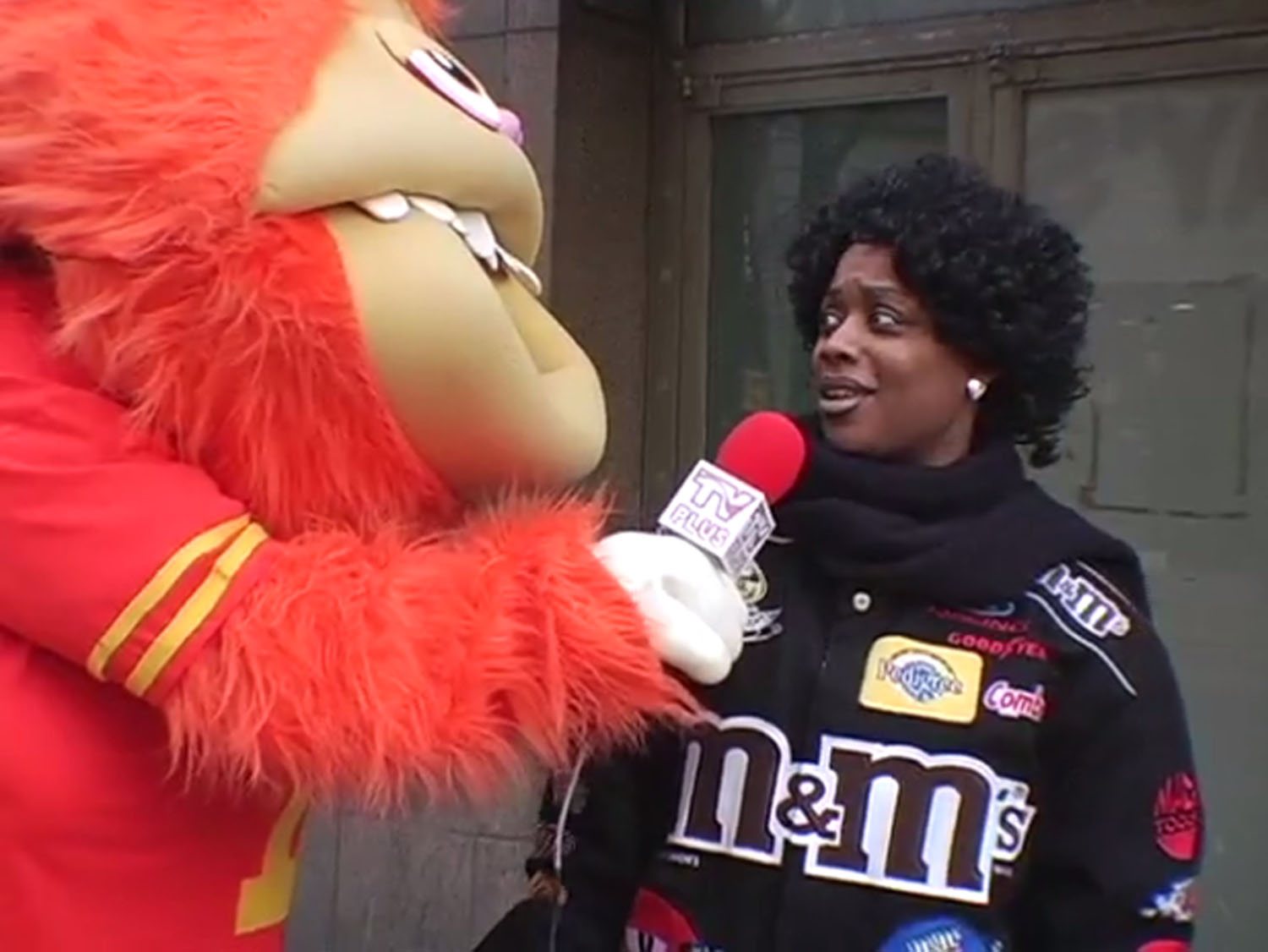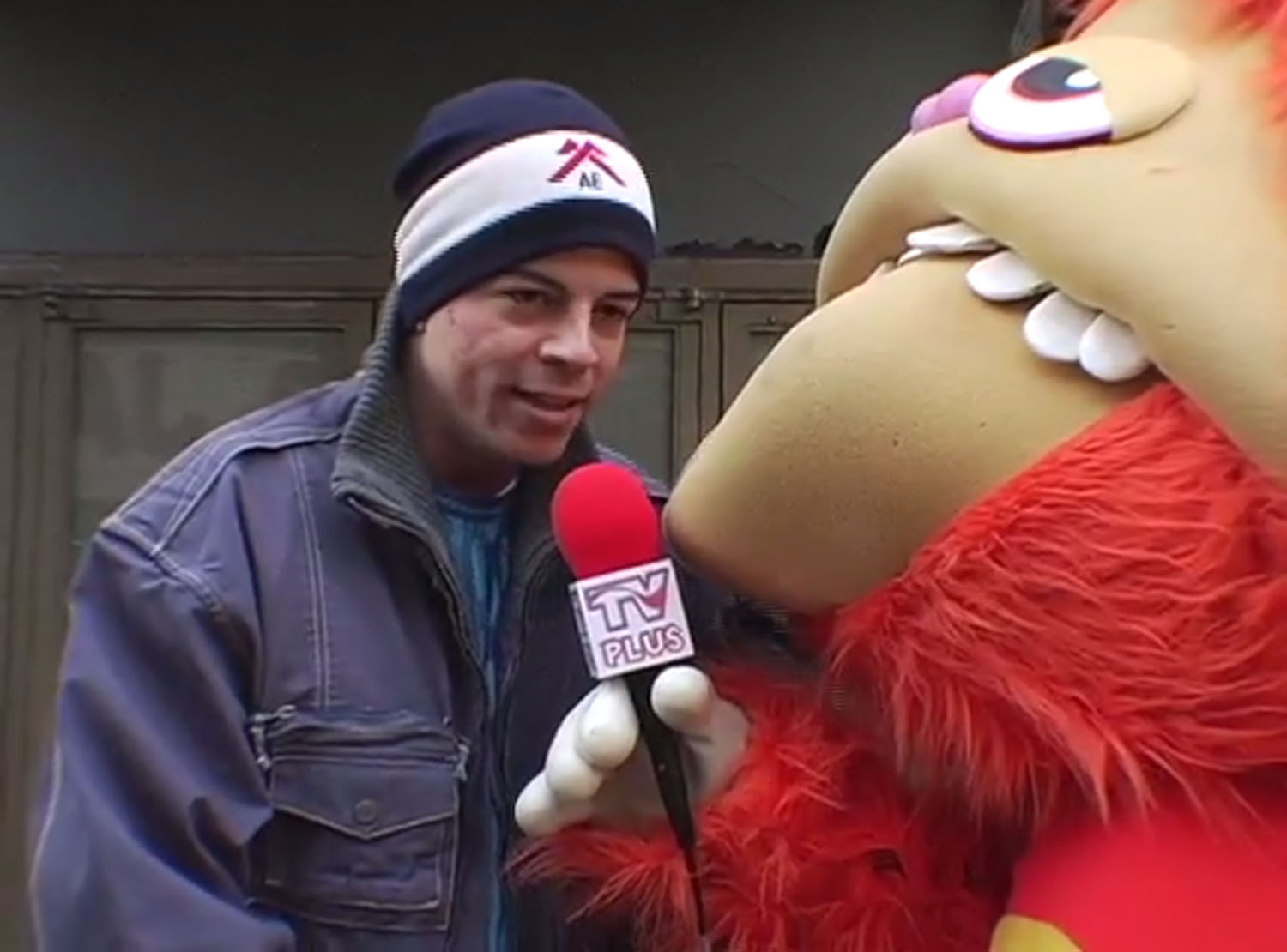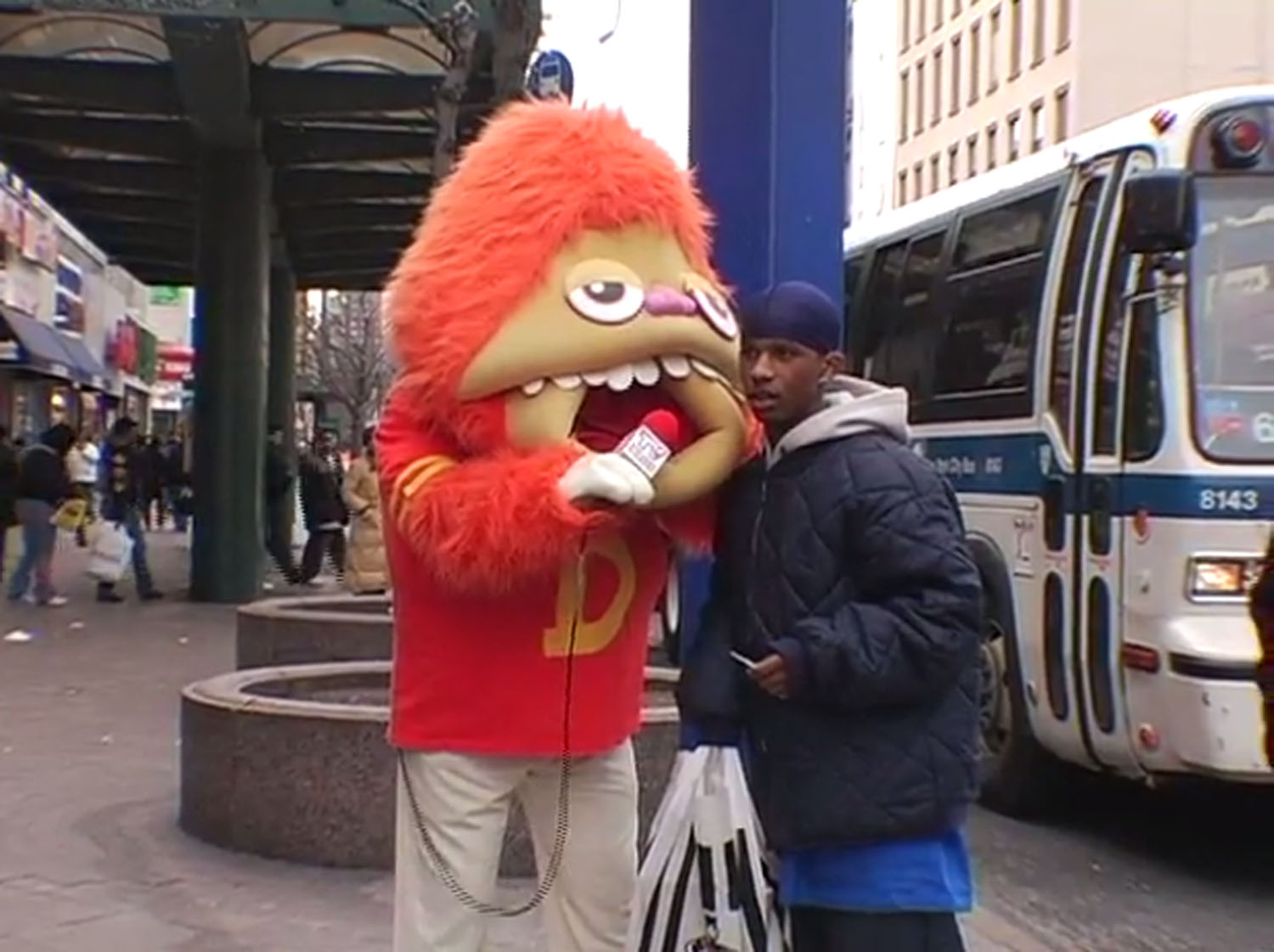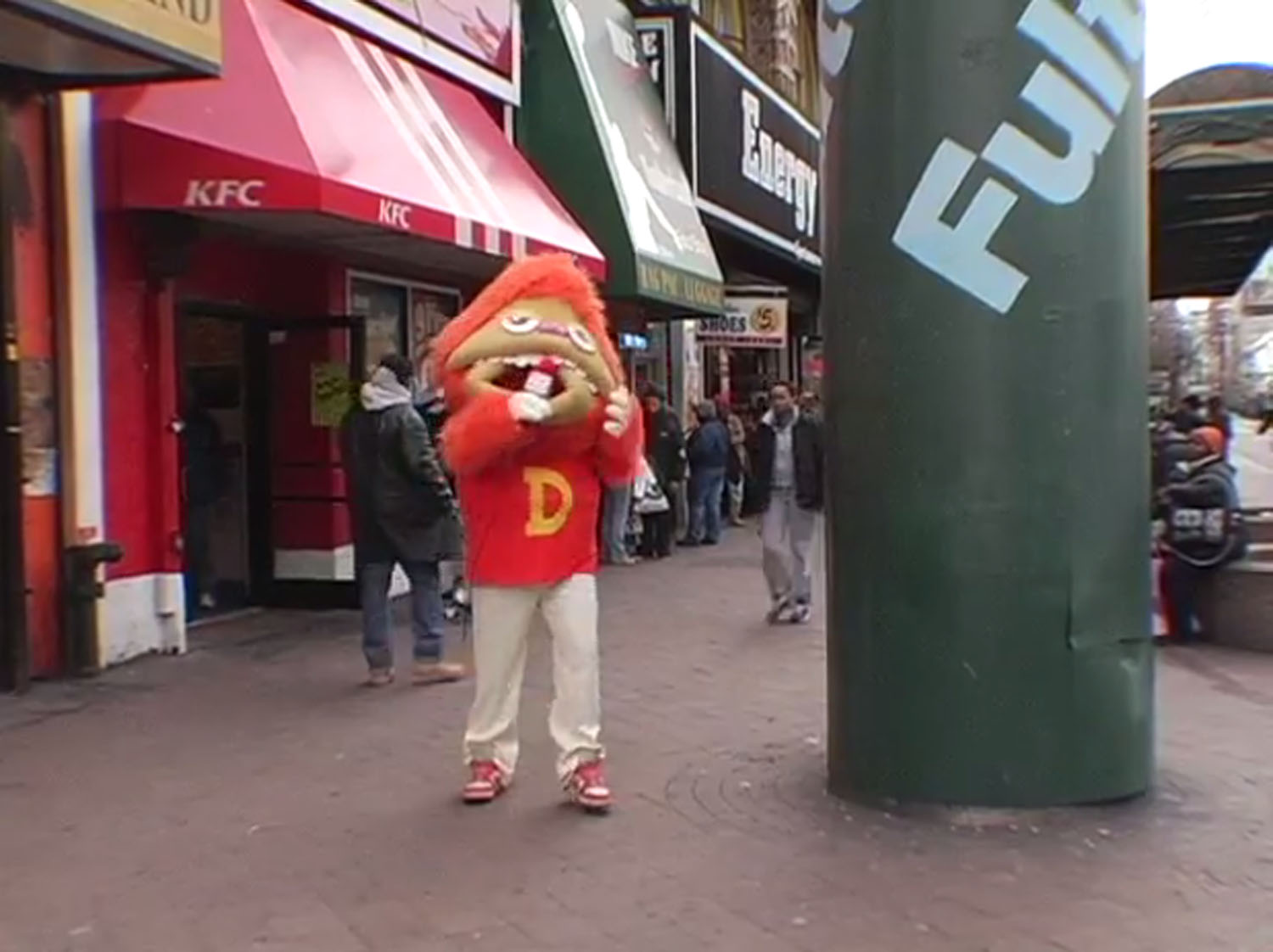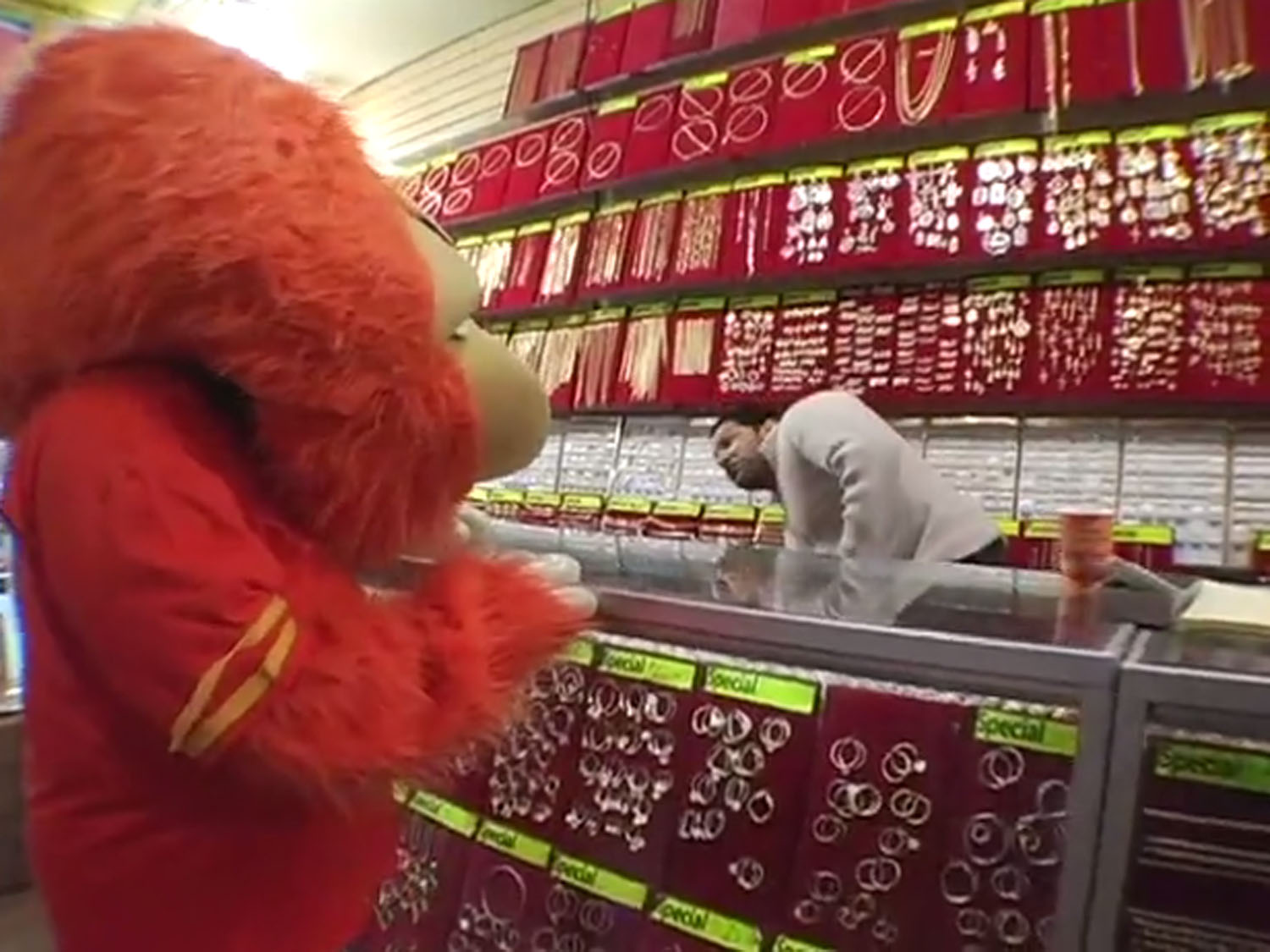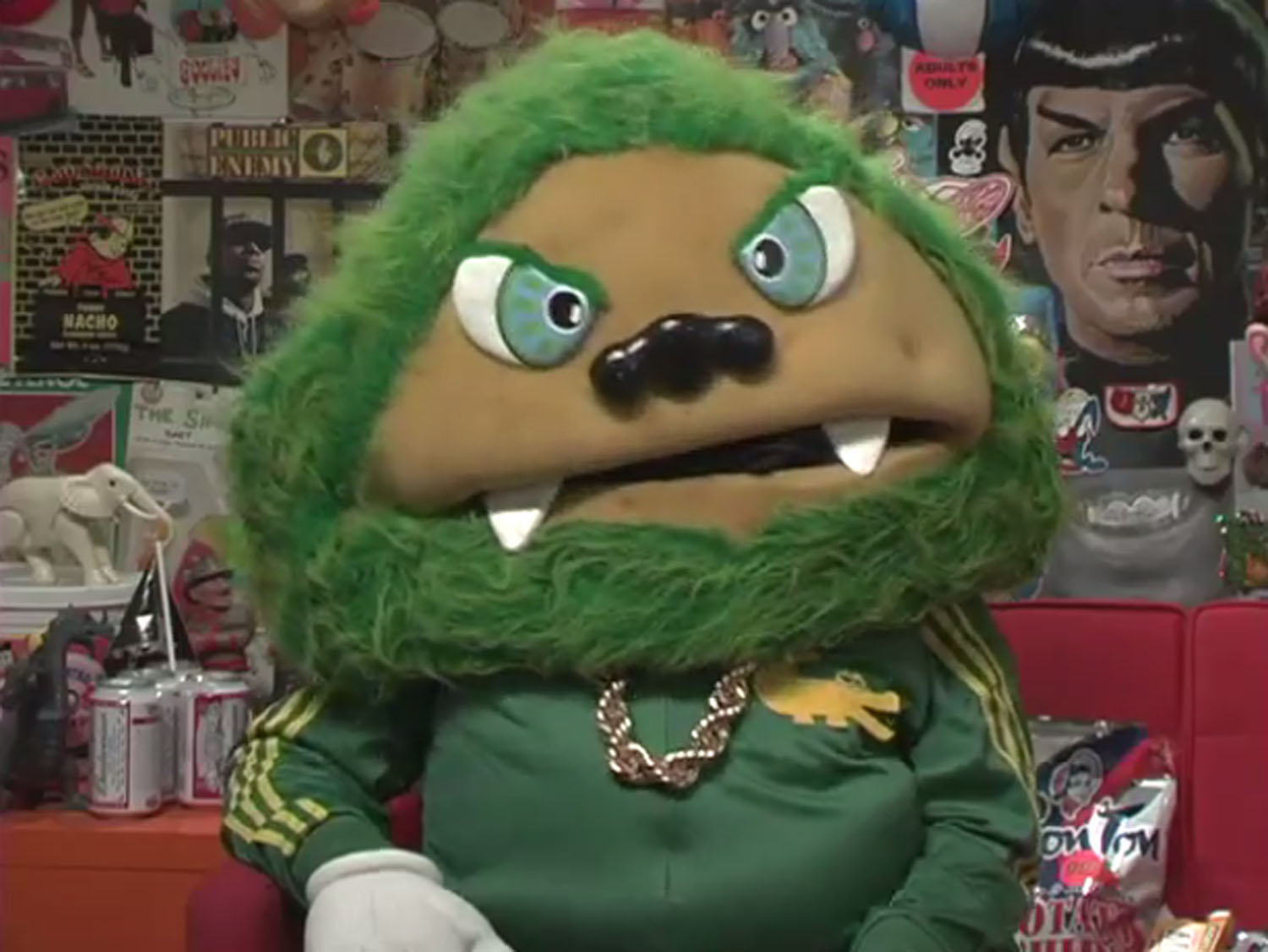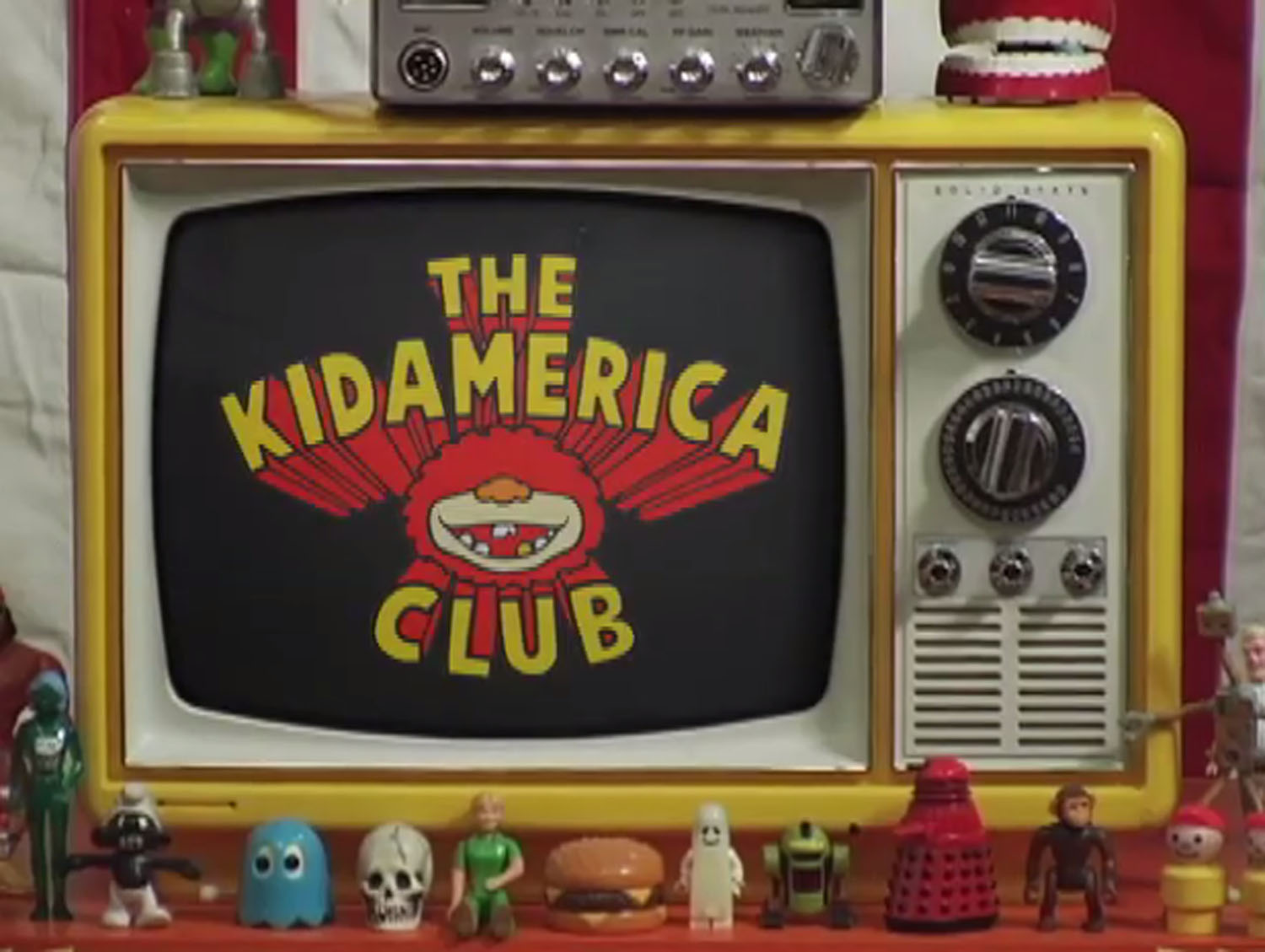KID AMERICA
Interview by Michael Bullock
Images courtesy of Kid America
Index 39, 2003
Using eclectic elements from soap operas, talk shows, and children's tv, Kid America's cable access show chronicles the exploits of a provocative cast of New York characters. index's Michael Bullock talks to director/writer/producer Kid America as he readies himself for the second season of his sometimes tender, sometimes insane collaborative underground spectacle. Cast members wander in and out of his downtown apartment as Kid America shares the story behind his notorious cable show.
How did you get the name Kid America?
Growing up in Queens, my graffiti crew was called U.S.A., the Underestimated Sons of Astoria. I was Kid Jesus. We hated regular graffiti, so we would write in our own style, which was like kiddie scrawl. But I lost all the members of my crew because I was such a dick at the time. And the Jesus part really pissed people off. So I decided to drop the Jesus and become Kid U.S.A. Calling myself Kid America was just the logical next step.
The Kid America Adventure Hour started with the five minute clips you were doing on your former girlfriend's cable access show.
Yeah. Then a few months later we got our own time slot. It's really easy to get one. If you're a New York resident, all you have to do is fill out a form. From the start, we did adventure segments on the street with the club characters. And we went to comic book conventions and did interviews with the nerds there.
The club characters look like evil Muppets. Did you design their costumes?
No. That's Fatboy, our production designer. He watched Sesame Street well into his twenties.
Is Fatboy the guy who was throwing up during one of the talk show segments?
Yeah, that's him. [laughs] He was on PCP that day. He's one of my oldest friends. We grew up going to comic book conventions together. Fatboy made the first costume out of foam, armature wire, and paint markers, and he used a car seat for fur. We called it Stuffed Eddie. It got an immediate response.
It looks like a character on a kid's show.
I want the show to be like Sesame Street for adults , I'm trying to bring a cartoon aesthetic into an actual urban setting. When Steven Spielberg was starting out, he said he wanted to create what he called "the missing movies." He meant the movie ideas that seemed obvious to him but hadn't been made yet. For me, the missing movies are cartoonbased. That's where I see the gaps.
So you're mixing cartoon ideas with skate culture?
The jumping off point is graffiti. When I was a kid, riding the train into work with my father was almost as good as watching Saturday morning cartoons. The club characters are sort of graffiti come to life.
I like when the club characters turn up as talk show guests. How did the talk show segments develop?
By our sixth episode, Aron was talking about creating his own talk show and he wanted me to shoot it for him. So we decided to make it part of our show instead.
Aron's an interesting guy. I see him at every party around town, moving and shaking. Didn't he also grow up in New York?
Yeah, he's a Brooklyn native. He came up through the fashion scene. He did some modeling and worked in retail but realized that world is total bullshit. Aron wanted to do the talk show because he is a mouth. He has his own crackedout version of the English language.
He talks in this incredible slang.
I think he's been working on it for years. [laughs] Some people don't understand him, but other people think he's more eloquent than anyone else around. I have no problem following his slang, I think it's got a lot of charm. Aron hosting a talk show is a perfect concept. We shot the first segment with Simon, a DJ and graphic artist, when he was all fuckedup on PCP. Aron knows how to draw people in and keep them interested. When he joined the show it gave us a street quality that is cool.
Who have been some of your other talk show guests?
There was Stuffed Eddie, one of the club characters. We've had the graffiti artist Futura 2000 and the band A.R.E. Weapons.
The talk show is called Krills. What does that mean?
There is a whole "ills" terminology. It's this ridiculous slang where you say the first few letters of a word and then add "ills." My friend becomes my frills. Krills is crack cocaine. During the intro to the talk show we show a guy smoking crack. The idea is that the segment's for crackedout and busted degenerates.
Yeah, I got that. [laughs] The drug use is really in your face.
The drugs are just another ridiculous element of the show. Simon on PCP is a ridiculous thing to watch. The point of the show is not to promote drugs but to show how silly they are. Like, "If he wants to be in this state, be my guest, but he looks crazy, doesn't he?".
Another part of the show is a soap opera called A Better Tomorrow. It's set in 2013. What's the premise?
The person who runs New York in 2013 is an evil DJ called the Red Baron, played by Aron. The Red Baron is selling a new drug that everyone is fiending for. It's taking over people's lives, they're focusing on the drug rather than on what they should be doing creatively.
But 2013 looks an awful lot like the present, with a bunch of your friends hanging out. It's very voyeuristic.
The actors hated it at first. I had to force Donald, who is the lead, to be in it. All I heard was, "You suck, you suck, you suck. This shit sucks." But they got into it. Now all Donald wants to do is be an actor.
Even though you call it a soap opera, there are these beautiful moments between the actors that seem very real. How do you direct it?
I just tell them to help each other. In a oneonone scene, the actors usually treat it like a competition. Sometimes they don't even listen to what the other person is saying. Like Harold, my God, Harold is just waiting for the other guy to finish talking so he can pick up where he left off.
Harold Hunter was in Kids right?
Yeah. He's a skater. He's a professional maniac. Harold doesn't stay in the world of the show at all. He just starts talking about his brothers and his uncles and bragging about some girl that he never had sex with. He's funny.
I know you went to film school at N.Y.U. What did you do there?
When I was in school, I sold a script to Gary Marshall, who directed Pretty Woman and Happy Days. It's about a crew of bicycle thieves in a mystical sixth borough of New York City.
How does a film student manage to sell a script to Gary Marshall?
The way you do anything here in New York. I met his son Scotty on the street. A month later I showed Scotty what I had written and he was like, "Oh my God." Then Gary Marshall's company, Henderson Productions, optioned it. So I moved out to L.A. for a little while, showing my script to the talent agencies and doing rewrites with Gary.
What was that like?
I was too young to handle it. I found the emphasis on traditional structure annoying. They wanted the main character to complete three tasks in order to join the gang. My script wasn't even about a gang.
These days you're also a DJ, playing pop from the 70s and 80s.
Fatboy and I like working with record loops and TV samples. Some of our music has ended up as the soundtrack for the show. It sounds like a psychedelic children's record „ it's a combination of basic drum machine beats, old school rap, and samples from cartoons and children's shows.
The show seems to be a place where all your interests can come together. How do you organize the cast and crew?
It's not organized. The first season wasn't scripted at all. We'd just say, "Yo, let's get the girl who plays Rapunzel and the Red Baron over to my house and shoot something." We'd do it, I'd cut it together, and it dragged. For the second season, we're going to shoot five scripted episodes. The characters are going to be much more developed. We've been working on the first episode of the second season for a good three months now.
So far, what's been your favorite moment of the show?
Fatboy went to a comic book convention dressed up as the club character, Fun Freddie. He interviewed this guy who was a little bit retarded, who talked about still being upset at the people who had made fun of him when he was a kid. And Freddie just says, "I hate when they make fun of us." It's just a really sweet part.
It is really sweet.
I know. There are moments like that, but we get more attention for someone throwing up or being high on PCP.
Where do you see the show going?
We've been approached by MTV, Channel 4 in London, and Miramax. A bunch of companies want to help us put out a DVD. Showtime seems like they might want to do a short. MTV, of course, wants to do a really watered down version of the show. But we just want to continue making shows ourselves. We don't want anyone to have any say over it. If we work with MTV, we're going to have to deal with schmaltzy old script writers.
Have you decided on the talk show guests for next season?
Thurston Moore will come on. And Simon will be back. We'll have a new club character, The Mercutroids and Jim Jarmusch. I'd like to do a segment with Jim Jarmusch followed by a fiveyearold kid. Jim Jarmusch will talk about filmmaking, and the fiveyearold will just tell us about his toys. It's going to be cracked out regardless.
